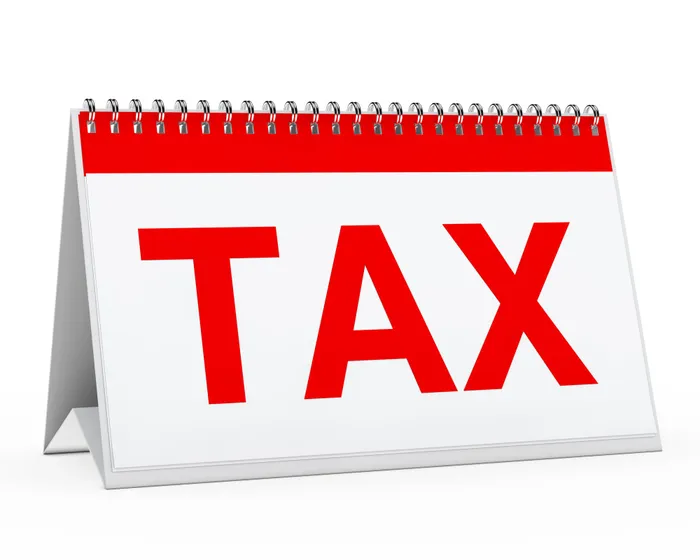Words on wealth: Render unto Caesar the taxes you pay

As an individual, you probably pay more to the government than you realise. Picture: Freepik
By Martin Hesse
The inevitable annual tax filing season is upon us. As an individual, you probably pay more to the government than you realise. It’s to your advantage to know about the different types of taxes, as you can then look at ways to pay less tax or as the financial planning experts say, become more “tax efficient”. Note that finding ways to reduce tax should not be confused with avoiding paying taxes that are rightfully due – that is against the law.
To paraphrase a well-known poem, “How does the government tax thee? Let me count the ways…”
Income tax
If you earn an income, you must pay tax on that income, whether it is in the form of a salary, commission, pension income or earnings from investments or rental property (taxes on investments are discussed separately below). Against what you earn in a tax year, you may deduct expenses incurred in producing that income – such as maintenance expenses on a rental property. You can also deduct contributions to a retirement fund and donations to designated charities.
For the 2024/25 tax year, if you are younger than 65 and your annual taxable income (gross income minus deductions) is below the threshold of R95 750, you do not pay tax. If you are 65 or older, the tax threshold is R148 217, and if you are 75 or older, the threshold is R165 689. (Note that you are currently filing a return for the 2023/24 tax year, so these figures don’t apply.)
Income tax in South Africa is a so-called progressive tax. You pay a higher rate the more you earn. The percentage goes up in increments, according to the marginal tax brackets. You pay less tax on the first R1 000 you earn than you do on your last R1 000.
You are then eligible for rebates, depending on your age and in line with the tax thresholds mentioned above, and medical tax credits to offset some of your medical expenses.
Taxes on investments
There are three taxes on investments:
1. Tax on interest. Interest on bank accounts and interest-bearing investments must be added to your income and taxed as such. However, the first R23 800 is tax-free which rises to R34 500 if you are aged 65 or older.
2. Withholding tax on dividends. Company dividends to shareholders are taxed at 20%. The tax comes off before you receive the dividend – it is not up to you to pay it. It applies to direct investments in shares and investments such as unit trusts in which the underlying assets are shares (equities).
3. Capital gains tax. This applies to assets that increase in value, such as shares in companies and property. You pay tax on the gain in value of the asset between its value when you bought it and its value when you sell it. (Note that the tax is only triggered when you sell.) The current exclusion for individuals is R40 000 and the inclusion rate (the percentage of the gain included in your annual taxable income) is 40%. You first subtract R40 000 from the gain and then you apply the 40% rate. There are higher exclusions on residential property and the sale of assets on your death.
Tax-free savings accounts and retirement funds are exempt from these three taxes.
Value added tax
On virtually everything you buy from groceries to services 15% goes to the government in the form of VAT. The tax applies at each step in the supply chain from raw materials to finished goods – hence the name. However, all parties in the supply chain can claim VAT refunds from Sars, except the consumer, who ultimately bears the burden. Some basic foodstuffs such as bread and milk are exempt from VAT (they will have an asterisk on your supermarket slip).
Donations tax
If you give money or a gift to another person or company, you the donor are taxed on that gift at 20%. If you are ultra-wealthy and the gift is more than R30 million, the rate is 25%. However, you are allowed to give money/gifts worth up to R100 000 each year without paying tax, and gifts or donations to a spouse are exempt.
Transfer duty
You pay transfer duty on the transfer of a property into your name. This progressive tax starts at zero for properties with a value of R1m or less. For the 2020/2021 tax year on a property of R2m you would pay about R45 000. However, on a property of R2.5m just half a million more, the transfer duty doubles to about R90 000.
Estate duty
This is a tax on your estate when you die: 20% on estates of up to R30m, and 25% on anything above that. However, the first R3.5m is exempt from tax, so your estate only pays tax on anything above that. Additionally, anything left to a spouse is exempt from estate duty, and any unused portion of the exemption “rolls over” to your spouse when you die. This means that, if the whole R3.5m exemption rolls over, your spouse will not pay anything on an estate of less than R7m.
Other duties and taxes
You also pay duties of varying amounts on imported goods, petrol, international air travel, and alcohol and tobacco products, among others.
* Hesse is the former editor of Personal Finance
PERSONAL FINANCE